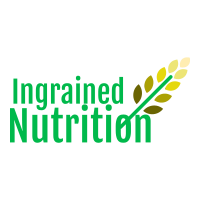Attention residents of Wagga! The cold of winter is well and truly finished and it is time to get out and about!
One of the most common statements dietitians are currently hearing from clients is:
“Since COVID I have gained a bit of weight”
These changes in our waistline are often accompanied not only by changes in our diet but by a decrease in physical activity, particularly as a result of working from home.
Low levels of physical activity are a risk factor for several chronic conditions including type II diabetes, cardiovascular disease and osteoporosis. Physical activity is also an important aspect of healthy ageing, allowing for healthy maintenance of musculoskeletal and mental health.
The pictures attached to this post were taken on the shared walking and cycling track of Lake Albert in Wagga Wagga. The track is 5.5km long and takes between 40-60 minutes to complete at a leisurely pace. Current guidelines for physical activity in Australia are between 150-300 minutes of moderate activity or 75-150 minutes of vigorous activity per week. Furthermore, this works out to be around 30-60 minutes of moderate exercise on 5 days of the week, or even less for regular vigorous activity. Wagga is blessed by many a walking track and opportunities to reach these guidelines, although Lake Albert has long been dietitian Josh’s favourite!
Lake Albert provides a relatively flat track, although the boat club car park gives a slight variation in gradient. Furthermore, the track is wheelchair accessible and provides an even surface appropriate for all ages 😊

It is also super important to ensure a healthy intake of carbohydrate and protein before attempting an exercise routine. Sports Dietitians Australia recommend diet alterations for activity of longer than 60-90 minutes, so in terms of a moderate walk around Lake Albert, extra dietary intake may not be necessary. However, foods which are rich in carbohydrate, low in fat and familiar to your regular diet are encouraged to allow for maintenance of blood sugar and allow you to get the most out of your activity.
Some examples of food to include during your day are:
- 1 medium-sized Banana (440kj, 25g carbohydrate, 1g protein)
- 1 vegemite and cheese sandwich on wholemeal bread (1100kj, 35g carbohydrate, 7g protein)
- 1 Uncle Tobys Yoghurt Topps muesli bar (500kj, 20g carbohydrate, 2g protein)
- 1 Strawberry Chobani Greek yoghurt (500kj, 20g carbohydrates, 12g protein)
- 1 tinned salmon and spinach sandwich on wholemeal bread (1100kj, 28g carbohydrates, 20g protein)
Whilst extra food may not necessarily be a large consideration when participating in moderate exercise, hydration should be, especially with a Riverina summer approaching! Drinking extra fluid helps to replace fluid lost in sweat during exercise. Everyone sweats at different rates, so it is important to pay attention to how your body operates when exercising. Often drinking water after exercising overlooks the importance of being well hydrated before exercise so ensure you are drinking throughout the day before attempting physical activity, especially as summer approaches. Do not use your thirst as a gauge for when you have had enough water, as your thirst is often quenched long before your body is fully hydrated. Sports dietitians Australia recommend an intake of 1.25-1.5L for every 1kg of weight lost during activity.
Lastly, with summer approaching, remember to put sunscreen on and consider wearing a hat to minimise your risk of skin cancer!
By Joshua Schiller, Dietitian

